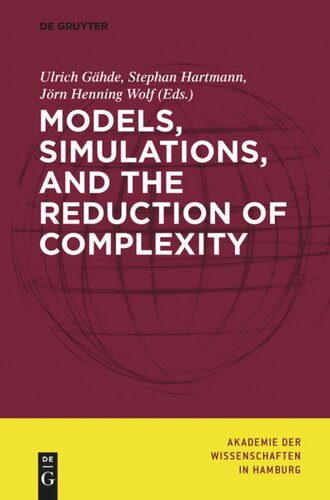

Most ebook files are in PDF format, so you can easily read them using various software such as Foxit Reader or directly on the Google Chrome browser.
Some ebook files are released by publishers in other formats such as .awz, .mobi, .epub, .fb2, etc. You may need to install specific software to read these formats on mobile/PC, such as Calibre.
Please read the tutorial at this link: https://ebookbell.com/faq
We offer FREE conversion to the popular formats you request; however, this may take some time. Therefore, right after payment, please email us, and we will try to provide the service as quickly as possible.
For some exceptional file formats or broken links (if any), please refrain from opening any disputes. Instead, email us first, and we will try to assist within a maximum of 6 hours.
EbookBell Team

4.3
28 reviewsModern science is, to a large extent, a model-building activity. But how are models contructed? How are they related to theories and data? How do they explain complex scientific phenomena, and which role do computer simulations play here? These questions have kept philosophers of science busy for many years, and much work has been done to identify modeling as the central activity of theoretical science. At the same time, these questions have been addressed by methodologically-minded scientists, albeit from a different point of view. While philosophers typically have an eye on general aspects of scientific modeling, scientists typically take their own science as the starting point and are often more concerned with specific methodological problems. There is, however, also much common ground in middle, where philosophers and scientists can engage in a productive dialogue, as the present volume demonstrates. To do so, the editors of this volume have invited eight leading scientists from cosmology, climate science, social science, chemical engeneering and neuroscience to reflect upon their modeling work, and eight philosophers of science to provide a commentary.